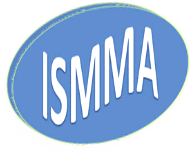Research program 1: Modeling, analysis, control, optimization, and numerical analysis of deterministic and stochastic mathematical models from the real world
Project 1.1. Analysis and control of differential systems modeling physical processes
Project 1.2. Inverse problems and numerical analysis
Project 1.3. Mathematical modeling in environmental and life sciences
Research within this program is mainly oriented towards the study of nonlinear partial differential equations (PDEs) and differential systems describing physical processes, motivated by the current issue of involving mathematics in other sciences through interdisciplinary research. All topics of the program are of both theoretical and practical interest.
The goal is to study, using advanced mathematical techniques, mathematical models based on partial differential equations in order to obtain fundamental theoretical results that are also capable of providing interpretations of the evolution or behavior of the solutions to these models.
Theoretical research is linked to applications, especially in environmental sciences, biology, medicine, and engineering. Among the various applications, we mention: diffusion in porous media, free boundary problems, phase transitions, reaction-diffusion processes, heat transfer, population dynamics, epidemics, and fluid dynamics.
From the mathematical perspective, the objectives focus on the study of the following aspects: existence, uniqueness, regularity, asymptotic behavior, and attractors for nonlinear PDE systems (hyperbolic, parabolic, elliptic) in Banach spaces, primarily in the deterministic case, but stochastic effects are also considered.
An important part of the research in this group refers to optimal control, controllability, stabilization, inverse problems, and optimization of systems of equations that model real-world phenomena.
| Research Team |
|---|
| Cristian-Mihai CAZACU - CS I (Webpage) |
| Cecil GRUNFELD - CS I (Webpage) |
| Oana-Valeria LUPAŞCU-STAMATE - CS I (Webpage) |
| Liviu MARIN - CS I (coordinator) (Webpage) |
| Gabriela MARINOSCHI - CS I (Webpage) |
| Sorin-Daniel MICU - CS I (CV) |
| Mihai MIHĂILESCU - CS I (Webpage) |
| Dumitru POPESCU - CS I (CV) |
| Gabriel Eduard VÎLCU - CS I (coordinator) (Webpage) |
| Stelian Ion - CS II (Webpage) |
| Tudor IONESCU - CS II (CV, Webpage) |
| Ştefan-Gicu CRUCEANU - CS III (Webpage) |
| Maria FĂRCĂȘEANU - CS III (Webpage) |
| Andreea GRECU - CS III (Webpage) |
| Marian PETRICĂ - CS III |
| Claudiu MÎNDRILĂ - CS |
| Mihai BUCĂTARU - AC |
| Teodor RUGINĂ - AC |
Research program 2: Statistical and computational methods for data analysis, optimization and the study of stochastic dependence
Project 2.1. Innovative statistical techniques and methods for data analysis
Project 2.2. Optimization problems: solutions, methods and applications
Project 2.3. Exploring synergies between Data Science and Artificial Intelligence
Project 2.4. Classical and modern topics in probability theory and random processes with applications
The projects focus on the development of advanced statistical measures, including new classes of entropy and divergence, probability distributions, and robust Pitman-type estimators. These will be applied in statistical inference models and data analysis in fields such as engineering, finance, demography, and environmental sciences. The goal is to improve parameter estimation, hypothesis testing, and risk modeling in the context of complex and atypical data.
Other projects focus on developing innovative techniques for addressing complex optimization problems, equilibrium problems, and variational inequalities.
Projects of high interest focus on developing new methods for data analysis, evolutionary algorithms, machine learning algorithms, natural language processing algorithms, and neural networks, with applications in pattern recognition, image analysis, engineering, economics, security, manufacturing process optimization, biology, and medicine.
In the field of probability theory current research takes into account both asymptotic results based on limit theorems and exact results. Monte Carlo methods for the study of polymers, multidimensional distributions, stochastic dependence, stochastic geometry, special problems in the metric theory of various real-number representation algorithms, large deviations in Markov processes, fragmentation processes, and the convergence of empirical distributions are investigated using probability, statistics, and functional analysis techniques.
| Research Team |
|---|
| Ion NECOARĂ - CS I (Webpage) |
| Mihai POSTOLACHE - CS I (CV, Webpage) |
| Cristian PREDA - CS I |
| Vasile PREDA - CS I |
| Marius RĂDULESCU - CS I |
| Ioan STANCU - CS I (Webpage) |
| Gheorghita ZBĂGANU - CS I |
| Miruna BELDIMAN - CS II (Webpage) |
| Dorin MARINESCU - CS II (Webpage) |
| Aida TOMA - CS II (Webpage) |
| Alexandru AGAPIE - CS III (Webpage) |
| Bogdan ALEXE - CS III |
| Udrea PĂUN - CS III (Webpage) |
| Anişoara RĂDUCAN - CS III (CV) |
| Gabriela SEBE - CS III (CV) |
| Mariana SIBICEANU - CS III |
| Andreea RUSU-STANCU - CS III (Webpage) |
| Silviu-Laurenţiu VASILE - CS III |
| Luiza BADIN - CS |
| Florentina ŞUTER - CS |


